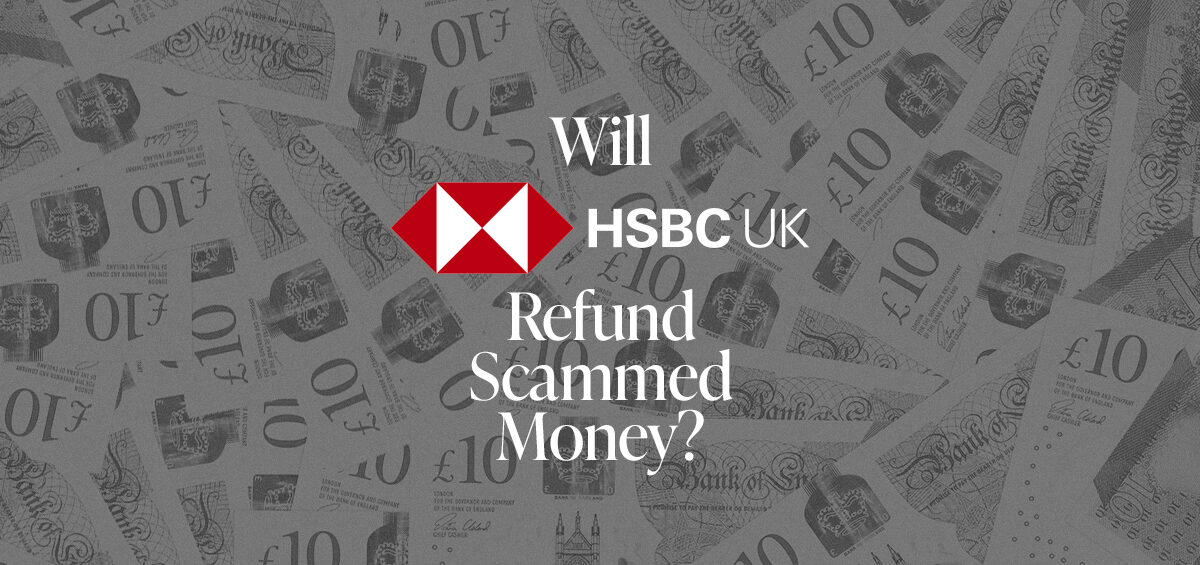Scams are unfortunately a common issue that affects more people than you might think. You probably think that it won’t happen to you – but the methods used are becoming a lot more sophisticated.
If you’ve recently been scammed, you might be wondering whether HSBC will refund you. In this article, we’ll explore how you can identify a scam, the conditions that apply when applying for a refund and how HSBC handles scam claims. We’ll also explore what you can do if HSBC refuses your claim and how CEL Solicitors can assist in recovering your funds.
How Do I Know if I’ve Been Scammed?
Before seeking a refund, it’s important to know whether or not you’ve been scammed.
Here are some typical telltale signs of a scam that you should look out for:
Unexpected Financial Transactions: Unfamiliar payments, withdrawals, or charges appear on your bank account.
Suspicious Messages or Calls: You receive unexpected emails, texts, or calls requesting personal details, such as passwords or banking information.
Pressure to Act Quickly: Scammers often create urgency, asking you to make decisions or payments without time to think or verify.
Too Good to Be True Deals: Offers or opportunities that seem unrealistically cheap, profitable, or beneficial could be scams.
Goods or Services Never Arrive: After making a payment, the product or service you paid for doesn’t materialise, and the seller becomes uncontactable.
Claims From Trusted Organisations: Fraudsters may impersonate banks, government agencies, or reputable companies to trick you into sharing personal or financial information.
Common Types of Scams
Here are some of the most common types of scams to look out for. Make sure you stay informed and aware.
Phishing Scams: Fraudsters impersonate trusted institutions, like banks or retailers, to steal your personal information.
Investment Scams: Fraudulent schemes that promise high returns but are designed to steal your money.
Romance Scams: Scammers create fake online relationships to gain your trust before asking for money.
Impersonation Scams: Fraudsters may pretend to be friends, family, or even the police to manipulate you into transferring money.
Will HSBC Refund My Money When I’ve Been Scammed?
HSBC may refund your money if you’ve been scammed, but certain conditions apply.
HSBC is committed to protecting its customers from fraud and offers the possibility of reimbursement under the Contingent Reimbursement Model (CRM) Code. To qualify for a refund, certain conditions need to be met. These include:
Immediate Reporting: You must report the scam as soon as possible, ideally within 24 hours of the fraudulent transaction.
No Gross Negligence: HSBC may not refund money if they determine that you were grossly negligent, such as sharing your PIN or password with others.
Evidence: You will need to provide evidence that the transaction was a result of a scam.
HSBC will then assess your case based on these factors and determine whether a refund is possible. If HSBC refuses to issue a refund, CEL Solicitors may be able to help you recover your money. Read on for more information
HSBC’s Advice on Staying Safe from Fraud and Scams
HSBC has clear guidelines and advice for customers on how to avoid falling victim to scams. They emphasise the importance of:
Protecting Your Personal Information: Never share your passwords, PIN, or other sensitive information with anyone, even if they claim to be from the bank.
Checking Contact Details: Always verify the identity of anyone claiming to be from HSBC by using official contact numbers listed on their website or your bank statements.
Being Wary of Unsolicited Requests: If you receive unexpected emails, calls, or text messages asking for money or personal information, it could be a scam.
Using Secure Websites: Ensure that the websites you’re making purchases from are secure and reputable (look for HTTPS and a padlock icon).
What if HSBC Doesn’t Refund My Money?
While HSBC may refund scammed money, there are circumstances where they may refuse your claim. If your claim is rejected, here are the steps you can take:
Appeal the Decision: HSBC offers an internal review process if your refund claim is declined. Make sure you provide any additional evidence or information that could support your case.
Contact the Ombudsman: If HSBC still doesn’t resolve the issue, you can escalate the complaint to the Financial Ombudsman Service.
Seek Legal Help: If you still can’t get your money back, you might consider seeking help from legal professionals like CEL Solicitors.
CEL Solicitors Can Help You Reclaim Your Funds
Don’t let a scam take away your hard-earned money. If you’ve been scammed by HSBC or another bank, fill out our online form or give us a call on 0330 822 3764 today to discuss how we can help you recover your funds. Let us take the stress out of the process and fight for your refund.













